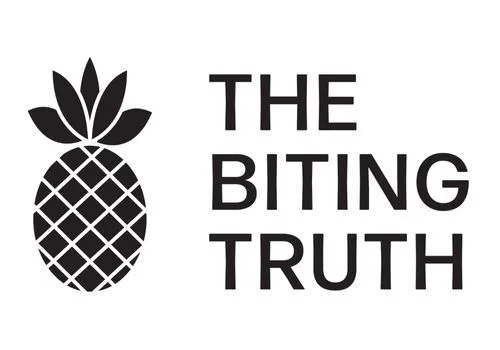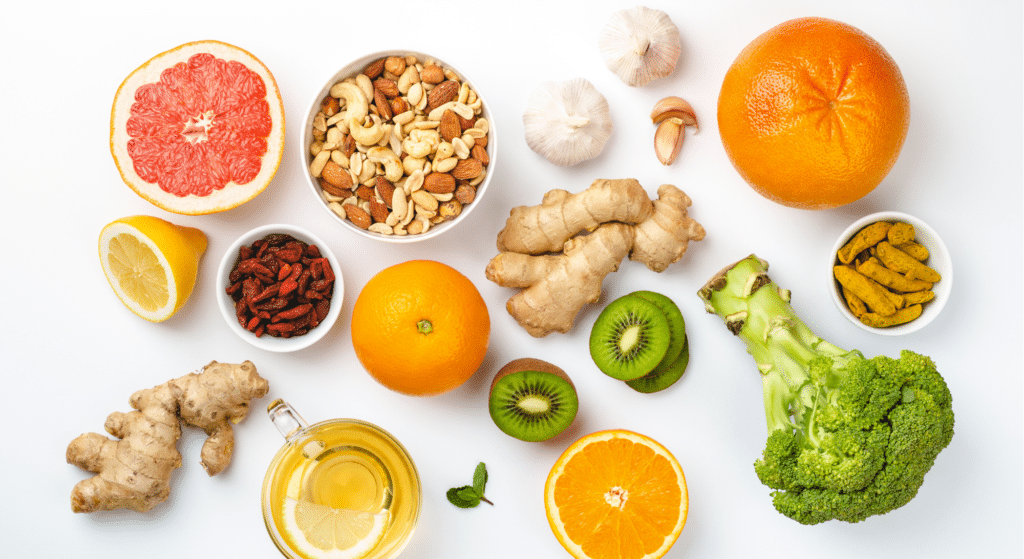
As we enter the cooler months here in Australia, you might be wondering – how can I keep myself healthy?
It’s around this time of year when online searches for ‘ways to bolster the immune system’ surge.
Despite what you may have been told by a friend or Googled in your own research, unfortunately there are no miracle cures guaranteed to boost immunity.
The immune system is not like a bicep muscle that you can make stronger by exercising. The immune system is a complex network of cells, organs and tissues that work in tandem to protect the body from infection. The germs we are exposed to over a lifetime as well as lifestyle factors like stress, sleep, diet and exercise all play a role in the strength of our immune system.
The good news…
Good nutrition certainly can help to support a strong immune system and indeed several nutrients are essential for aspects of immune function. While there are a huge number of nutrients that play a role in immunity, below we’ve picked out the top nutrients we recommend paying attention to!
1. Vitamin C
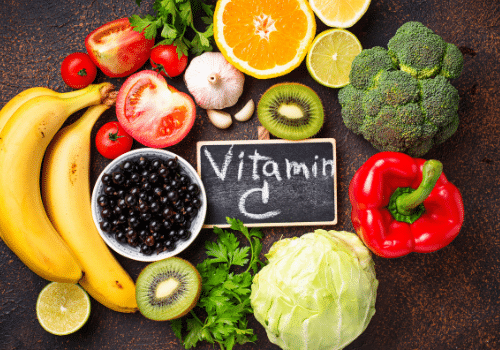
Vitamin C contributes to immune defence by supporting a variety of cell functions and can lower the risk of respiratory infections. It can also help the growth and repair of tissues in your body.
You can get all the vitamin C your body needs from eating a wide range of fruits and vegetables including tomatoes, broccoli, brussel sprouts, capsicums, oranges, kiwi fruits and strawberries.
FUN FACT: The only mammals that can’t make vitamin C in their bodies are primates, guinea pigs, fruit bats and humans. Somehow during evolution, we lost one of four vital enzymes needed to produce it. This means we have to get vitamin C from elsewhere (aka diet).
2. Vitamin D
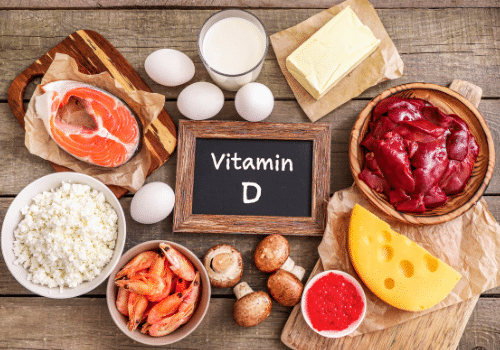
Humans are able to make vitamin D when our skin is exposed to ultraviolet (UV) light from the sun. In fact, we get 90% of the vitamin D we need from the sun, with the remaining 10% coming from foods (fatty fish, hard cheese, egg yolks, fortified beverages and mushrooms) and supplements.
The primary role of vitamin D in the body is to regulate how the body absorbs calcium making it essential for Bone health. There is growing research showing that low levels of vitamin D might be linked to immune function, mental health, gastrointestinal health and a number of other conditions.
FUN FACT: Mushrooms have a high concentration of “pre-vitamin D”, which is extremely similar in structure and function to the type naturally found in human skin. Exposing mushrooms to UV (from the sun) converts this “pre-vitamin D” to vitamin D just like what happens when humans are exposed to sunlight. Putting 5 store-bought button mushrooms in the sun, or just one portobello mushroom, produces 24ug of vitamin D which is equal to 1000IU (note the standard recommendation for bone health is for 600 to 800 IU per day).
3. Zinc
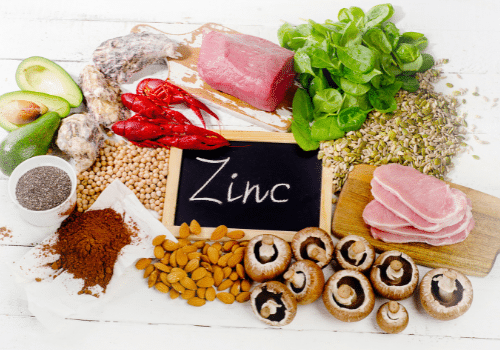
Zinc is considered an essential nutrient, meaning that the body cannot produce or store it. Zinc plays a role in helping to produce new immune cells and supports communication between immune cells.
Being a key mineral found in tissues and fluid, zinc is mainly found in animal products (meat, dairy, eggs). Plant sources included fortified cereals, seeds, nuts, legumes and wholegrains. Vegans and vegetarians may have lower zinc levels as plant based sources also contain compounds that inhibit zinc absorption.
FUN FACT: Oysters contain more zinc per serving than any other food. In fact half a dozen oysters will take care of your zinc requirements for the week.
4. Iron
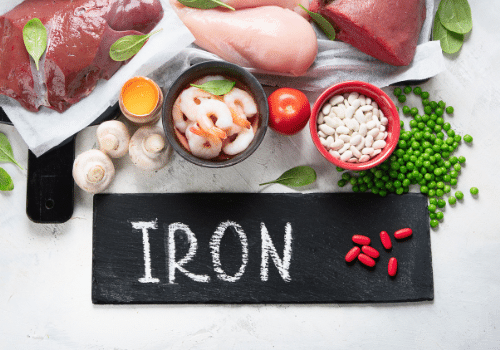
Adequate iron levels are essential for a healthy immune system. If you are low in iron at the time you’re hit by a virus, your body might find it more difficult to fight off the virus. Remember women and children are at a high risk of iron deficiency.
Food sources of iron: red meat, chicken, fish, beans, lentils, oats, fortified breakfast cereals.
FUN FACT: Eating vitamin C containing foods such as fruits and vegetables at meals times will help to increase iron absorption in your body.
5. Vitamin A
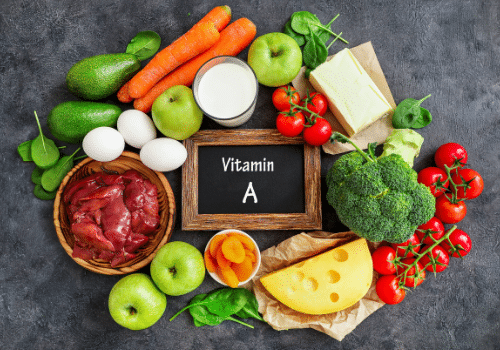
Vitamin A plays a vital role in maintaining your body’s natural defences. It is essential to the cells that line mucosa in your lungs, nose and mouth. It’s also involved in the production and function of white blood cells, which help capture and clear bacteria and other pathogens from your bloodstream.
If you don’t have enough vitamin A, viruses have a better chance of getting through your first line of defence.
Good sources of vitamin A: cheese, eggs, oily fish, milk, yoghurt, carrots, pumpkin, sweet potato, spinach, broccoli.
FUN FACT: Vitamin A is a fat soluble vitamin, which means that you should eat foods with vitamin A with a source of healthy fats to increase absorption. For example enjoy eggs with some avocado or carrots with an extra virgin olive oil based salad dressing.
Here are some Immune Supporting recipes:
- Supercharged Chicken, Barley & Kale Soup
- Pulse Pasta Nourish Bowl
- Prawn & Ginger Stir Fry
- Green Shakshuka
- Tomato, Chicken & Barley Soup
—-
Notes:
- Check out our Instagram page for tips to support your immune system.
- Not sure where to start with your diet? Check out our range of meal plans.
